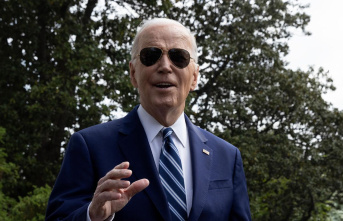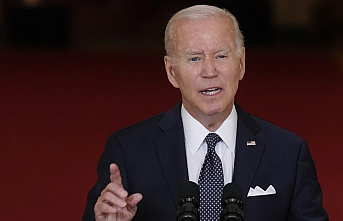Narendra Modi arose from his chair to walk briskly to the podium to give another nighttime address. The speech was expected to include a rare message about interfaith harmony in a country that has seen religious tensions rise under Modi's rule.
Indian Prime Minister was speaking from the Red Fort, an historic Mughal-era fort in New Delhi. The event commemorated the 400th anniversary celebrations of Guru Tegh Bahadur (the ninth Sikh Guru) who is well-known for his support for religious freedoms for all.
In many ways, the occasion and venue were right.
Modi instead chose April to reverse the clock and recall India's most hated Muslim ruler, who had been dead for over 300 years.
Modi stated during his address, "Aurangzeb severed many head but he couldn't shake our faith."
His invocation of 17th-century Mughal Emperor was more than a mere coincidence.
Aurangzeb Alamgir was buried in India's complicated history. Modern rulers of India are now trying to resurrect him as a brutal oppressor for Hindus and a rallying cry of Hindu nationalists who believe India should be freed from the curse of so-called Muslim invaders.
As tensions between Hindus, Muslims and Muslims escalate, Aurangzeb's scorn has grown and Indian politicians have used him like never before. This warning comes often with the cautionary warning that India's Muslims should not be associated with him in retaliation for his alleged crimes.
Audrey Truschke, historian and author "Aurangzeb, The Man and the Myth" said, "For today’s Hindu nationalists Aurangzeb, is a dog whistle to hate all Indian Muslims."
India's Hindu nationalists have for decades tried to make India a Hindu nation by hating and demeaning Muslim rulers, especially Mughals.
Although some historians believe such stories are exaggerated, they claim that Muslim rulers like Aurangzeb desecrated Hindu culture, forced religious conversions, and imposed harsh taxes upon non-Muslims. Nationalists believe that Hindu-Muslim tensions began in medieval times when seven Muslim dynasties called India home. Each was eventually overthrown by the rest.
They were driven by this belief to seek to redeem India's Hindu history and to correct the wrongs they had suffered over the centuries. This sentiment is centrally held by Aurangzeb.
Aurangzeb, the last Mughal emperor, was imprisoned and had his brother murdered. Aurangzeb, unlike other Mughals who ruled over vast empires in South Asia for over 300 years and have a fairly uncontested legacy, is almost certain to be one of the most hated Indian men.
Richard Eaton, an Arizona professor who is widely considered to be an authority on premodern India, stated that Aurangzeb did not destroy temples. However, records indicate that it was only a few dozen, and not thousands. Eaton stated that this was not for religious reasons and was political. He also said that the Muslim emperor extended safety to all religions.
Eaton stated that he was "in a word, an individual of his time and not of ours" and that the Mughal emperor had been reduced to "a comic-book villain."












